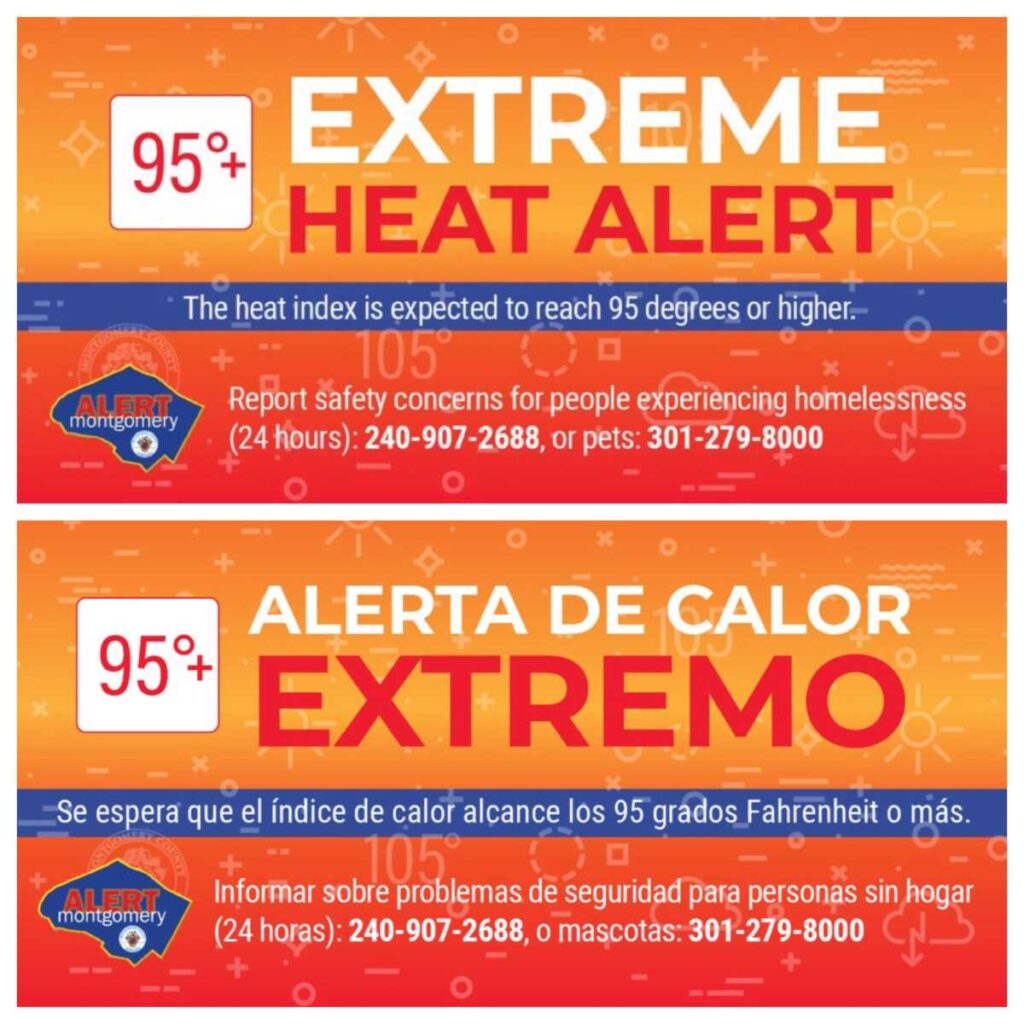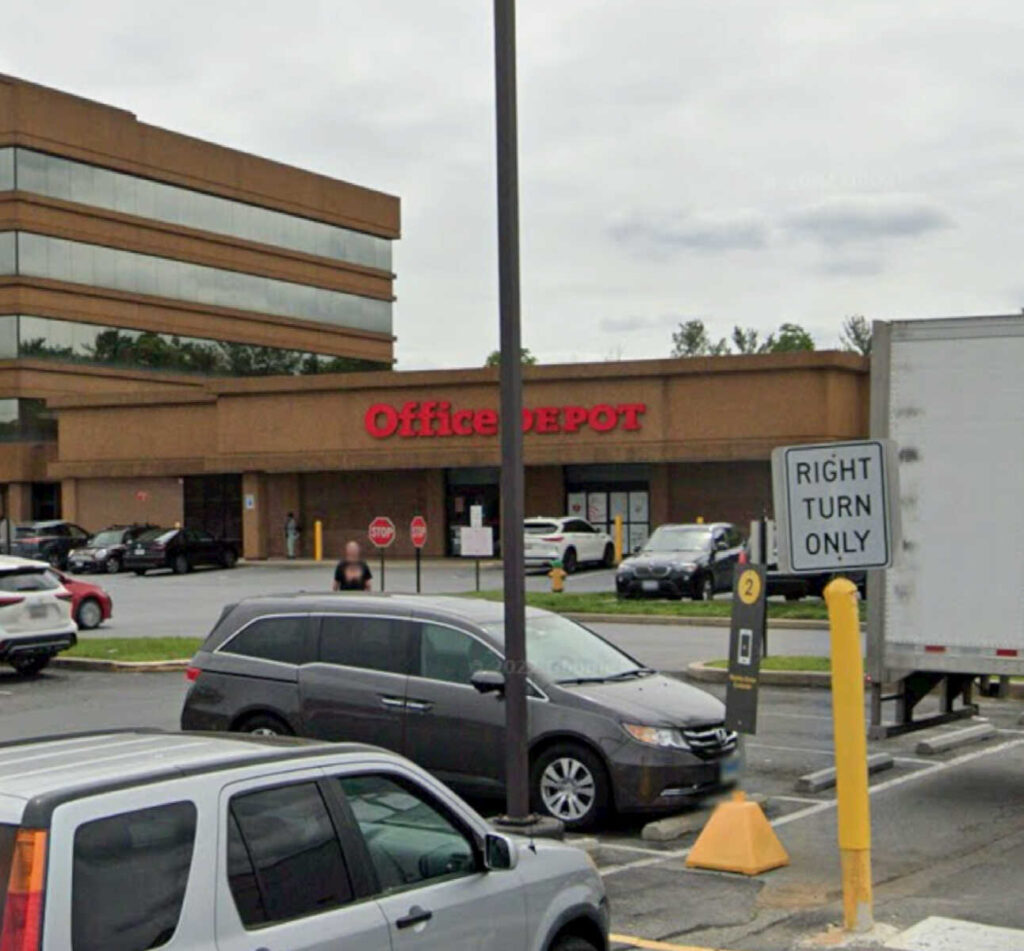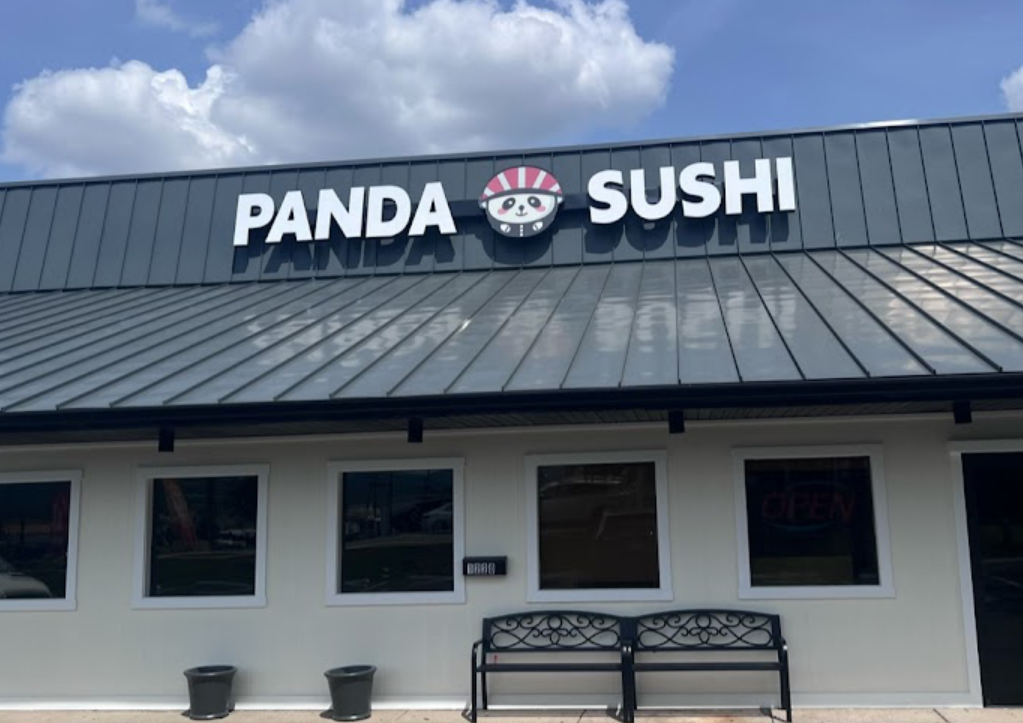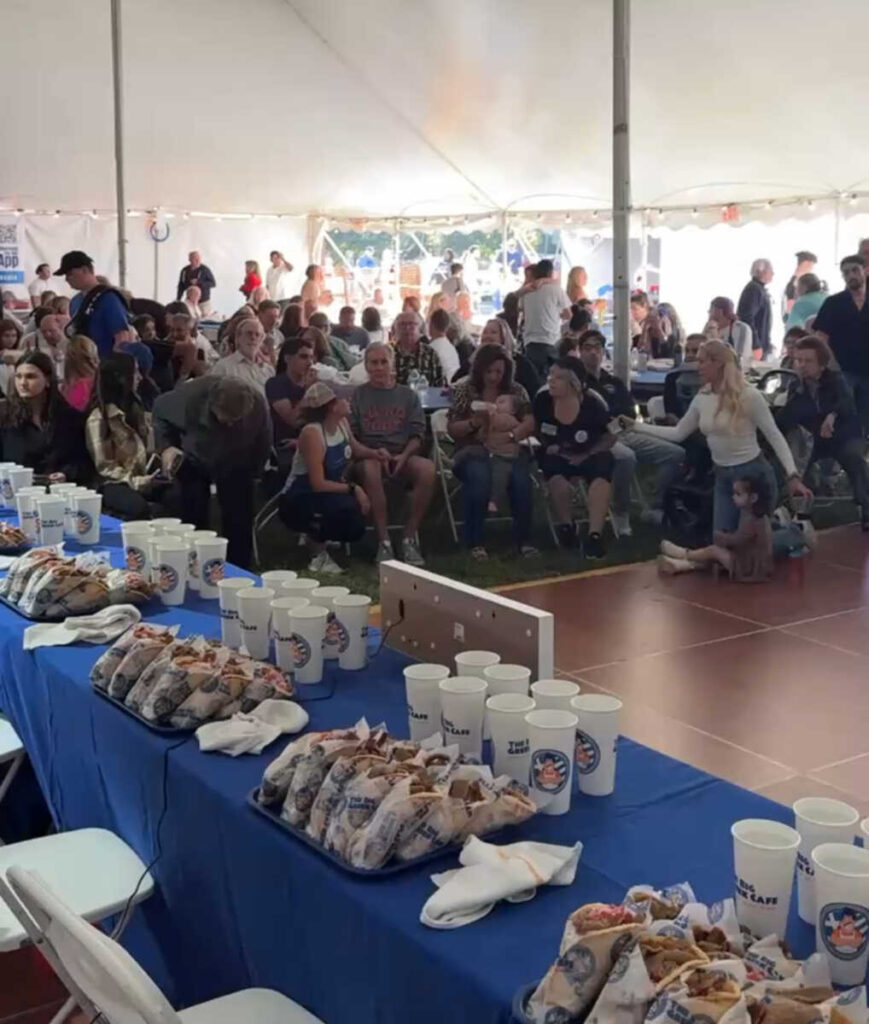An Extreme Heat Alert has been issued by Montgomery County for Wednesday, July 9 from 12 to 5 p.m. Anticipate temperatures above 95 degrees Fahrenheit. Keep yourself and your dogs hydrated and take preventative measures against heat-related illnesses.
According to Montgomery County, excessive heat impairs the body’s capacity to regulate its temperature, which can lead to hazardous situations if the proper precautions are not taken. The elderly, young people, and those with underlying medical disorders may be more affected by heat, which can also have an effect on air quality, particularly in urban areas.
Dizziness, nausea, headaches, painful muscle cramps or spasms, pale or flushed skin that may be chilly or moist, and weakness in the early stages are all signs of heat-related disorders. In severe situations, residents should call 911 right away to get medical help if they experience red, hot, dry skin, a weak pulse, rapid breathing, or changes in consciousness.
During regular business hours, county amenities such as libraries, swimming pools, leisure centers, and senior centers are available for cooling down. Movie theaters and indoor shopping centers are examples of public spaces that could be used. Because of the intense heat, certain outdoor events may be canceled or rescheduled, so check with the organizers before going.
For passengers on Montgomery County Ride On, extRa, Flex, and Flash buses, free bottled water will be provided on the buses. The Ride On Trip Planner app and the Department of Transportation’s website both provide timetable information for buses.
Progress Place in downtown Silver Spring will open during the day so people can get away from the heat when it becomes too hot. During the heat emergency, homeless shelters will remain open around-the-clock. During the extreme heat, police and outreach workers will be urging anyone without shelter to stay inside. Residents should contact the 24-hour Homeless Information Line at 240-907-2688 if they have any concerns about the welfare of a homeless person. Outreach partners will look for the person and provide assistance and resources.
- Stay indoors, whenever possible. Keep blinds or curtains closed to keep the inside cooler.
- Keep in mind: Electric fans may provide comfort, but when the temperature is in the high 90s, they may not prevent heat-related illness. Taking a cool shower or bath or moving to an air-conditioned place is a better way to cool off. Use the stove and oven less to maintain a cooler temperature.
- Avoid strenuous activities that can result in overexposure to the sun, such as sports and gardening. If you must do a strenuous activity, do it during the coolest part of the day, which is usually in the morning before 9 a.m.
- If you re spending time outdoors, take frequent breaks in a cool, shaded location.
- Drink plenty of water. Dehydration, cramps, exhaustion or heat stroke can result from not drinking enough fluids. Water is the safest liquid to drink.
- Avoid alcohol or caffeine.
- When outdoors, wear proper protection from the sun. Light-colored clothing, a hat, sunglasses and sunscreen are strongly recommended.
- Never leave people or pets in a vehicle for ANY amount of time, even with the window open. The temperature inside parked cars can reach over 130 degrees in only a few minutes.
-
Monitor and frequently check on those at high risk. Those at greatest risk of heat-related illness include:
- Infants and children up to four years of age.
- Individuals 65 years of age and older.
- Individuals who are ill or on certain medications.
- Individuals who are overweight.
- Infants and children up to four years of age.
- Individuals 65 years of age and older.
- Individuals who are ill or on certain medications.
- Individuals who are overweight.
- Heat cramps: symptoms include painful muscle spasms, usually involving the abdominal muscles or legs.
- Heat exhaustion: first signs are cool, moist, pale or flushed skin, dizziness, nausea, headache and weakness.
-
Heat stroke: the most serious type of overexposure. Symptoms include red, hot, dry skin, weak pulse, rapid breathing and changes in consciousness. Seek medical attention immediately by calling 911. Help lower the person s temperature with cool cloths or a cool bath until help arrives.
More info on heat stroke
.
During the heat emergency, the Office of Animal Services will enforce Executive Regulation 17-17, Anti Cruelty Conditions for Dogs and Other Pets. Pet owners are not allowed to leave their animals alone in cars or outside. Pet owners can obtain safety information from the Montgomery County Office of Animal Services.
To get weather-related and other emergency warnings, register for the Montgomery County sAlert notification system. When an emergency occurs that could impact your home, place of employment, child’s school, or any other location in Montgomery County, the Alert Montgomery System sends precise and prompt emergency notifications via text, email, or voice message to your cell, work, or home phones.
Call 311 for general information about County services and activities. The Heat Emergency webpage provides information on hot weather safety tips and heat emergencies.












